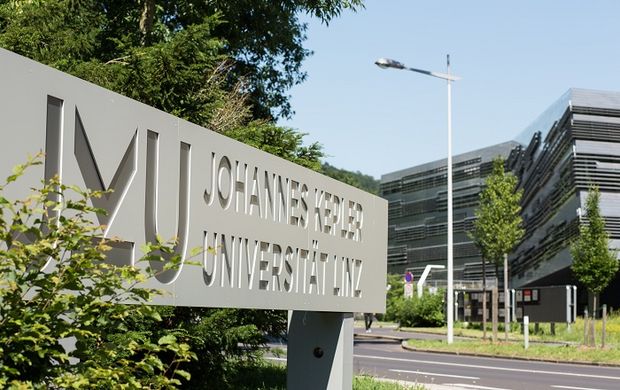A successful economic, research and educational state needs a strong JKU, meaning a powerhouse university supported by stable finances.

University budget negotiations start this fall, setting a course to make one of the most important decisions to affect the region over the past few years. The JKU Agenda 25+ forms the basis of the budget negotiations with the federal government: The number of students actively taking examinations in STEM subject areas is expected to increase by 25% over the next three years. Many influential people in the region support the university’s ambitious goals.
Governor Mag. Thomas Stelzer remarked, “If Upper Austria is doing economically well, then Austria is doing economically well. But we need more than praise from the federal government – we need concrete action in the form of sufficient financial funding.” The Kepler University is currently receiving only 5% of the entire budget for Austrian universities. Stelzer added that as a driving economic force in Austria, the state of Upper Austria needs a strong JKU that can continue to grow and develop.
Deputy Gov. Dr. Michael Strugl stated that the Johannes Kepler University continues to play a key role in driving advancements, strengthening Upper Austria as a competitive location of business. He added, “Upper Austria aims to become a top economic region and this requires a top-rated, European university. If the JKU does not receive additional federal funding, it will be hard pressed to reach the research quota of 4%.”
State Minister Mag. Christina Haberlander explained that the Kepler University is an indispensable partner in Upper Austria’s educational and healthcare landscape as the JKU is the largest university institution in the region, attracting many school students who graduate with their Matura diploma in Upper Austria. “All parties involved in Upper Austria’s healthcare facilities, R&D facilities, educational institutions, and companies are pulling together to strengthen innovation in the field of healthcare.” She added that everything is being done in the best interests of patients by offering them the best possible healthcare and safety.
Mag. Doris Hummer, President of the Upper Austrian Economic Chamber, remarked, “The university’s strategic measures, such as creating the Linz Institute of Technology (LIT) and expanding the number of degrees offered in science and engineering, show that the JKU is on the right path.” The business community supports the university’s efforts to receive a fair share of the federal budget.
DI F. Peter Mitterbauer, VP of the Federation of Upper Austrian Industrialists, added, “The government must provide unwavering support for a state where the demand for STEM graduates is high and the shortage of skilled workers discourages further expansion. We can no longer stand by and simply accept that Upper Austria, as a value-adding engine for Austria, is being severely disadvantaged when it comes to its share of the budget for higher education.”
Future-Oriented Strategy – Solidarity Required
JKU Rector Dr. Meinhard Lukas explained that the university’s development plan to 2024 sets the course to implement a future-oriented, strategic plan. An essential part of the plan is the JKU Agenda +25: Over the next three years, the number of students actively taking examinations in STEM fields (science, technology, engineering, mathematics) will grow by 25%. Rector Lukas added, “The more students actively studying STEM subjects means the more graduates we will have and this area needs these graduates. We can only reach this ambitious goal in close cooperation with the government, industry, and the business community.”
The Kepler University is pre-destined to play a key role in shaping digital transformation. “When it comes to understanding technology, technical innovation is not the only thing we focus on. We also think about and shape the social, economic, healthcare, and legal framework. The keyword: Responsible Technology.” LIT and the four faculties have an interdisciplinary nature that is unique in Austria and the pre-requisites are ideal. The Rector added, “This means our faculties must continue to grow and advance.”
Rector Lukas insists on fairly distributing the 1.35 billion euros of Austria’s budget for higher education: “The JKU is on the right path and only by securing a significant increase in sustainable funding can we ensure our future success.” In order to maintain the JKU’s full extent of teaching and research and ensure future-oriented development, the JKU must receive over 60 million euros in additional funding. Rector Lukas stated, “This is the only way our university can grow as much as the universities in Vienna and Graz.”








